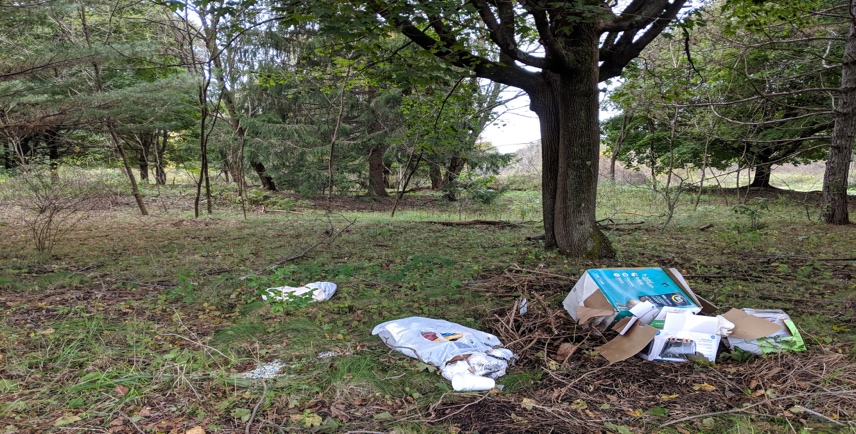Opinion: Fieldwork exposes pollution epidemic
By Jesse Shircliff, Guest Columnist
Take this trash as a symbol. Some experts have considered the phrase “global pollution epidemic” to aptly describe the massive quantity of plastics accumulating in the environment, ranging from the floating islands of plastics to the microplastics in your body and mine. These issues are concerning, but they tend to feel far away and impersonal. Now, we study environmental issues because we hope to bring great change.
Despite large heaps of trash, the photo above is not as disturbing to me as the ones that follow.
When the Earth Systems Science class visited an anthracite coal site in the central PA, I saw an empty bag of potato chips resting near the spot where some thirty students, almost all of whom are majors or minors of Environmental studies at Gettysburg College, ate their lunch. I bet the student beside me that no one would pick up the bag that so obviously sat beside us.
I was right. Before the bus pulled away, I picked it up myself. This happened again with a pop can at the bottom of a strip mine we visited. Then again. Then the fourth time, I decided to show you (see picture below).
As we finished the hike, I was leading the pack and noticed a silver can on the left-side of the trail (pictured above). I doubled back and waited to see what the next generation of environmental activists would do.
After the entire group had passed, I picked up the can myself.
That’s strange right?
I tailed the group for the remaining quarter mile and found eight more obvious pieces of trash. I put no effort into locating (or picking up) these items because they were on the trail. In some cases, I watched my classmates literally step over the rubbish below.
To me, this photo is far more disturbing than the first because this is a different symbol—a symbol of our relationship to trash. Apparently, this is a relationship that not even educated and supposedly active environmental scholars would surpass. It is not a world-ending mistake to leave trash behind, but I wonder if it is part of a world-ending issue that needs to be discussed.




